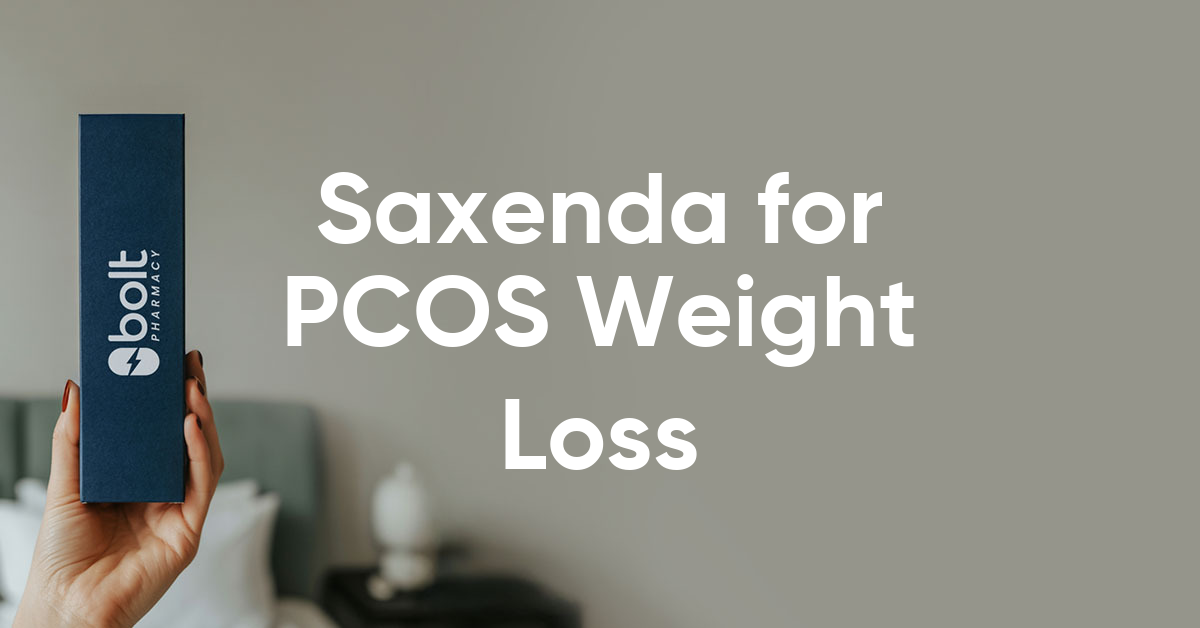Does Mounjaro cause sulphur burps? This question concerns many patients prescribed tirzepatide for type 2 diabetes. Sulphur burps—belching with a distinctive rotten-egg odour—result from hydrogen sulphide gas produced during digestion. Whilst not formally listed as an adverse reaction in Mounjaro's Summary of Product Characteristics, the medication's mechanism of slowing gastric emptying could theoretically contribute to increased gas production in some individuals. Understanding the relationship between Mounjaro and digestive symptoms, alongside practical management strategies, helps patients navigate treatment whilst maintaining quality of life.
Summary: Sulphur burps are not listed as an established adverse reaction to Mounjaro (tirzepatide), though the medication's mechanism of slowing gastric emptying could theoretically contribute to increased gas production in some individuals.
- Mounjaro is a dual GLP-1 and GIP receptor agonist licensed in the UK for type 2 diabetes mellitus treatment.
- The medication slows gastric emptying to improve glycaemic control, which may prolong food transit and potentially increase bacterial fermentation.
- Common gastrointestinal adverse effects include nausea, diarrhoea, vomiting, and constipation, typically mild to moderate and diminishing over time.
- Patients experiencing persistent sulphur burps should consult their prescribing clinician to assess whether symptoms are medication-related or due to another cause.
- Dietary modifications, smaller meals, and avoiding sulphur-rich foods may help manage symptoms; report suspected side effects via the MHRA Yellow Card scheme.
Table of Contents
What Are Sulphur Burps and Why Do They Occur?
Sulphur burps are characterised by an unpleasant odour resembling rotten eggs when belching. This distinctive smell results from hydrogen sulphide gas, which is produced during the breakdown of certain foods in the digestive system. The gas may form when sulphur-containing proteins are metabolised by bacteria in the gastrointestinal tract.
Common causes of sulphur burps include:
-
Consumption of sulphur-rich foods such as eggs, meat, dairy products, cruciferous vegetables (broccoli, cauliflower, Brussels sprouts), and garlic
-
Bacterial overgrowth in the small intestine
-
Gastrointestinal infections, particularly those caused by Giardia lamblia and sometimes Helicobacter pylori
-
Conditions affecting digestive motility, such as gastroparesis
-
Certain medications that slow gastric emptying
When food remains in the stomach or intestines for prolonged periods, bacterial fermentation may increase, potentially contributing to greater production of hydrogen sulphide. This delayed gastric emptying can occur for various reasons, including underlying medical conditions or as a side effect of certain medications. The accumulation of gas then escapes through belching, carrying the characteristic sulphurous odour.
Whilst sulphur burps are generally not a serious medical concern, they can be socially embarrassing and may indicate an underlying digestive issue requiring attention. If accompanied by severe abdominal pain, persistent diarrhoea, vomiting, unexplained weight loss, or if symptoms persist beyond 2-4 weeks, it is important to consult a GP for proper evaluation. In most cases, however, sulphur burps are temporary and resolve once the triggering factor is addressed or the digestive system adjusts.
Does Mounjaro Cause Sulphur Burps?
Mounjaro (tirzepatide) is a glucagon-like peptide-1 (GLP-1) and glucose-dependent insulinotropic polypeptide (GIP) receptor agonist licensed in the UK for the treatment of type 2 diabetes mellitus. Sulphur burps are not listed as an adverse reaction in the official Summary of Product Characteristics (SmPC) for Mounjaro, and there is no established causal link in clinical trial data.
The mechanism by which Mounjaro might theoretically contribute to digestive symptoms relates to its pharmacological action. Tirzepatide works by:
-
Slowing gastric emptying, which prolongs the time food remains in the stomach
-
Reducing gastrointestinal motility
-
Modulating gut hormone responses
-
Reducing appetite and food intake
This delayed gastric emptying is therapeutically beneficial for glycaemic control and weight management, as it promotes satiety and reduces postprandial glucose excursions. However, when food sits in the stomach for extended periods, this could potentially contribute to increased gas production, including hydrogen sulphide in some individuals.
The gastrointestinal adverse effects most commonly reported in clinical studies include nausea (17.9-24.2%), diarrhoea (13.3-22.1%), vomiting (6.2-10.5%), constipation (5.8-9.3%), dyspepsia, and abdominal pain. These effects are typically mild to moderate in severity and tend to diminish over time as the body adjusts to the medication.
Patients experiencing persistent or troublesome sulphur burps whilst taking Mounjaro should discuss this with their prescribing clinician, who can assess whether the symptom is medication-related or due to another underlying cause. Suspected side effects can be reported through the MHRA Yellow Card scheme (yellowcard.mhra.gov.uk).

How to Manage Sulphur Burps While Taking Mounjaro
If you experience sulphur burps whilst taking Mounjaro, several practical strategies may help reduce their frequency and severity. These approaches focus on dietary modifications, eating habits, and general digestive health.
Dietary adjustments:
-
Reduce intake of sulphur-rich foods, including eggs, red meat, poultry, dairy products, cruciferous vegetables, garlic, and onions
-
Avoid carbonated beverages, which can increase belching
-
Limit high-fat foods, as these slow gastric emptying further
-
Consider keeping a food diary to identify specific triggers
-
Eat smaller, more frequent meals rather than large portions
Eating habits and lifestyle modifications:
-
Eat slowly and chew food thoroughly to aid digestion
-
Avoid lying down immediately after meals; remain upright for at least two hours
-
Stay well hydrated throughout the day with water
-
Reduce alcohol consumption, which can irritate the digestive system
-
Consider probiotic supplements or probiotic-rich foods (yoghurt, kefir, sauerkraut), though evidence for their effectiveness in this context is limited
Some patients find relief with over-the-counter remedies such as peppermint tea, which may help soothe the digestive tract (though it can worsen reflux in some people), or simethicone, an anti-foaming agent that may help reduce gas and bloating. Activated charcoal has limited evidence but is sometimes used; however, it can adsorb medicines, so separate by at least 2 hours and avoid frequent use. If taking antacids, be aware they can affect the absorption of other medicines—separate by at least 2 hours.
When to seek medical advice:
Contact your GP or diabetes specialist nurse if sulphur burps are accompanied by:
-
Severe or persistent abdominal pain, especially if radiating to the back (possible pancreatitis)
-
Right upper abdominal pain, fever or yellowing of the skin/eyes (possible gallbladder disease)
-
Persistent vomiting or inability to keep fluids down
-
Bloody or black stools
-
Unexplained weight loss
-
Signs of dehydration
For urgent concerns, call NHS 111 for advice or 999/visit A&E for severe symptoms. Your healthcare provider may recommend adjusting your Mounjaro dose, temporarily discontinuing the medication, or investigating alternative causes. Never stop or adjust your medication without professional guidance.
Why Mounjaro May Lead to Digestive Side Effects
Understanding why Mounjaro causes digestive side effects requires knowledge of its mechanism of action and how it affects the gastrointestinal system. As a dual GLP-1 and GIP receptor agonist, tirzepatide exerts multiple effects throughout the digestive tract.
Pharmacological mechanisms:
GLP-1 receptors are widely distributed in the gastrointestinal system, including the stomach, small intestine, and colon. When activated by tirzepatide, these receptors slow gastric emptying by reducing the rate at which the stomach releases its contents into the small intestine. This delayed emptying is beneficial for glucose control, as it moderates the postprandial rise in blood glucose. However, it also means food remains in the stomach longer, potentially increasing the opportunity for bacterial fermentation and gas production.
Additionally, GLP-1 receptor activation affects gastrointestinal motility throughout the entire digestive tract, potentially leading to constipation in some patients or altered bowel habits. GLP-1 receptor agonists as a class may also reduce gallbladder emptying, which could contribute to digestive symptoms in some individuals.
Dose-dependent effects:
Gastrointestinal side effects with Mounjaro are typically dose-dependent, meaning they are more common and severe at higher doses. According to the SmPC, the medication is initiated at 2.5 mg once weekly for 4 weeks, then increased to 5 mg weekly. Further increases can be made in 2.5 mg increments at intervals of at least 4 weeks, up to a maximum of 15 mg weekly. Dose escalation can be delayed if gastrointestinal side effects are not tolerated.
Most patients experience the greatest digestive symptoms during the first few weeks of treatment or following dose increases, with gradual improvement as the body adapts.
Individual variation:
Not all patients experience digestive side effects to the same degree. Factors influencing individual susceptibility include baseline gastrointestinal function, dietary habits, concurrent medications, and the composition of gut microbiota. Healthcare professionals should counsel patients about expected gastrointestinal effects before initiating treatment and provide strategies for managing these symptoms. If side effects become intolerable despite conservative management, dose adjustment or alternative treatment options should be considered in consultation with the prescribing clinician.
Frequently Asked Questions
Are sulphur burps a common side effect of Mounjaro?
Sulphur burps are not listed as an established adverse reaction in Mounjaro's Summary of Product Characteristics. However, the medication's mechanism of slowing gastric emptying could theoretically contribute to increased gas production in some individuals.
What should I do if I experience sulphur burps whilst taking Mounjaro?
Try dietary modifications such as reducing sulphur-rich foods, eating smaller meals, and staying well hydrated. If symptoms persist or are accompanied by severe abdominal pain, vomiting, or other concerning symptoms, consult your GP or diabetes specialist nurse.
Can I stop taking Mounjaro if I develop sulphur burps?
Never stop or adjust your Mounjaro dose without professional guidance. Speak with your prescribing clinician, who can assess whether symptoms are medication-related and discuss management strategies or dose adjustments if needed.
The health-related content published on this site is based on credible scientific sources and is periodically reviewed to ensure accuracy and relevance. Although we aim to reflect the most current medical knowledge, the material is meant for general education and awareness only.
The information on this site is not a substitute for professional medical advice. For any health concerns, please speak with a qualified medical professional. By using this information, you acknowledge responsibility for any decisions made and understand we are not liable for any consequences that may result.
Heading 1
Heading 2
Heading 3
Heading 4
Heading 5
Heading 6
Lorem ipsum dolor sit amet, consectetur adipiscing elit, sed do eiusmod tempor incididunt ut labore et dolore magna aliqua. Ut enim ad minim veniam, quis nostrud exercitation ullamco laboris nisi ut aliquip ex ea commodo consequat. Duis aute irure dolor in reprehenderit in voluptate velit esse cillum dolore eu fugiat nulla pariatur.
Block quote
Ordered list
- Item 1
- Item 2
- Item 3
Unordered list
- Item A
- Item B
- Item C
Bold text
Emphasis
Superscript
Subscript












